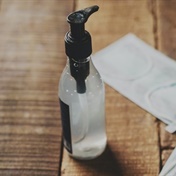Eczema is a condition that may commence after the third month of life as a weepy rash on the face and outer surfaces of arms and legs.
In later childhood it becomes a dry scaly itchy rash in the inner creases of the elbows and knees. Some children may not outgrow eczema and the condition often continues into adulthood.
Clothing
Children should avoid hot, humid and cold, dry weather, excessive sweating, woollen or synthetic clothing close to the skin and perfumed soaps. Cotton underwear, clothing and bed linen are recommended.
Detergents
Non-biological washing powders should be used instead of enzyme enriched powders. Bubble baths, household antiseptics and medicated soaps are best avoided. Swimming pool chlorine may also irritate and dry out the skin. Local household skin irritants include wool, mohair, nylon and feathers. House dust mites as well as dog and cat skin flakes may aggravate eczema.
Bath
Bath water should be lukewarm and moisturing emollients applied to the skin within three minutes of patting the skin dry. Never rub the skin dry. If non-perfumed soaps irritate the skin then the use of aqueous cream, Aquabar or Cetaphil lotion are recommended.
In bed
As much skin as possible should be covered with non-allergenic lightweight cotton clothing, taking care not to overdress or overheat the child. Cotton night gloves as well as neatly clipped finger nails will reduce scratching. Sometimes elbow splints need to be applied to stop intractable scratching at night.
Immunisations
Routine childhood immunisations should be given. Consult your doctor if you have any concerns about these immunisations.
Career
Young adults should decide on a career that is less likely to expose them to irritant chemicals and should probably avoid nursing, hairdressing, catering, motor mechanics or the building industry. Protective gloves with cotton inner-linings will help prevent irritant contact dermatitis that is so very common in eczema sufferers.
Diet
The role of diet is currently a controversial topic. Discuss dietary changes with your doctor.
Treatment
Take your child to the doctor for a proper assessment and to develop a treatment plan. Medication may include cortisone creams, antibiotics or antihistamines.
(Liesel Powell, Health24, updated December 2009)




 Publications
Publications
 Partners
Partners










